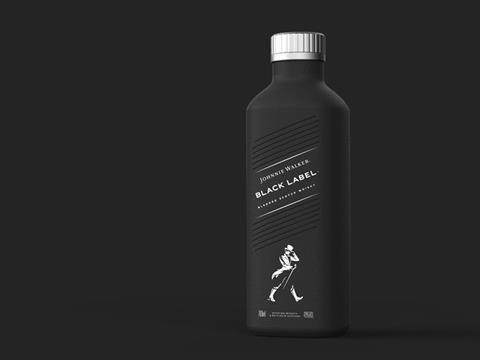
Diageo, the maker of Johnnie Walker, Smirnoff, and Guinness, has today announced that it has created what it describes as the world's first-ever 100% plastic-free paper-based spirits bottle, reportedly made entirely from sustainably sourced wood.
The product is apparently made from sustainably sourced pulp to meet food-safety standards and is expected to be fully recyclable in standard waste streams.
Pulpex Limited's technology allows it to produce a variety of plastic-free, single mould bottles that can be used across a range of consumer goods. The packaging has been designed to contain a variety of liquid products and will form part of Diageo's commitment towards Goal 12 of the United Nations Sustainable Development Goals: “Responsible Consumption and Production”.
The bottle, which will debut with Johnnie Walker in early 2021, is a result of Diageo’s partnership with venture management company Pilot Lite on the launch of Pulpex Limited, a new sustainable packaging technology company.
With the aim of ensuring that the technology can be used in every area of life, Pulpex Limited has established a partner consortium of world-leading FMCG companies in non-competing categories including Unilever, and PepsiCo, with further partners expected to be announced later in the year.
The consortium partners are each expecting to launch their own branded paper bottles, based on Pulpex Limited's design and technology, in 2021.
Ewan Andrew, chief sustainability officer at Diageo PLC, commented: "We're proud to have created this world first. We are constantly striving to push the boundaries within sustainable packaging and this bottle has the potential to be truly ground-breaking. It feels fitting that we should launch it with Johnnie Walker, a brand that has often led the way in innovation throughout its 200 years existence."
Sandy Westwater, director of Pilot Lite said: "We're thrilled to be working with global brand leaders in this consortium. By working together, we can use the collective power of the brands to help minimise the environmental footprint of packaging by changing manufacturing and consumer behaviours."













